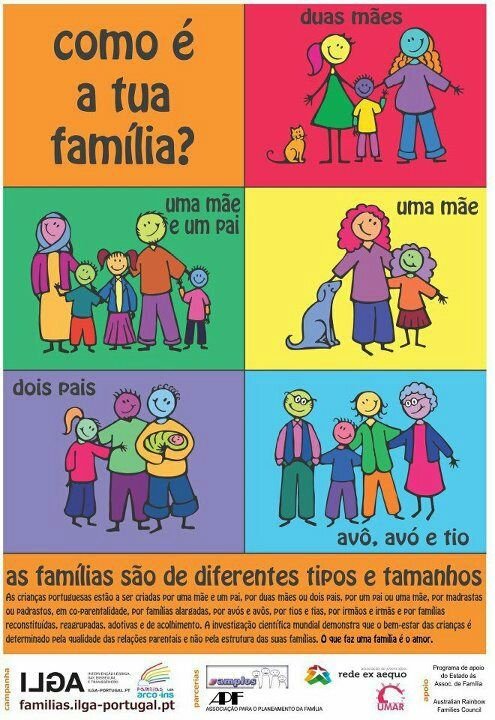In Defense of the Tentacular Family

Today’s psychoanalysts make a mistake that Freud would not have made if he were alive. Issues such as fratricidal rivalry and incest interdiction are not consequences of a nuclear family structure, that is, monogamous, patriarchal, endogamous. These questions are biological, evolutionary in the strict sense of the word. But despite these analytical errors, the article In defense of the tentacular family written by Maria Rita Kehl raises extremely relevant questions and analyzes about the dissolution of the normal family. Here is an abstract written by Isabela França< /a>:
“The tendency of society has been to move further and further away from this familiar pattern that the Brazilian middle classes have adopted as an ideal… idealIt all started with the entry of women into the labor market, and as a result, “the financial emancipation of those who during so many decades have been so dependent on the heads of the household.” Since then, the number of separations and divorces has increased considerably, as has the age at which women have decided to marry.
In addition to the financial freedom of girls, which allows them to experiment and take more risks in their love choices, there is also the factor of sexual freedom achieved by women. “With the discovery and democratization of contraceptive techniques, the taboo that supported monogamous marriage no longer made sense”, as it disconnected female sexuality from procreation. Because of this, there are more and more women alone with children to raise, unplanned pregnancy among teenagers has become something common, getting married, having children and separating has become something much more “routine”.
According to Kehl, “the freedom of choice that this moral change provides, the possibility of trying to correct one’s destiny countless times, take their toll in helplessness and malaise. The helplessness is felt because the family is no longer a solid institution to become a circumstantial and precarious grouping, governed by the least reliable law among humans: the law of affections and sexual impulses”.
Maria Rita calls “tentacular family” the new irregular configurations of families, which are mixed, improvised and maintained with affection, hope and disappointment, as far as possible, which are “marked by frustrated dreams, abandoned and resumed projects, in the construction of a future as similar as possible to the ideals of the family of the past”. An ideal that, if not surpassed, will continue to cause suffering and discomfort.
When talking about “normal family”, it is worth questioning whether this “normal” is the same as healthy, since as Kehl points out, this “discomfort” in this scenario of extreme mobility of family configurations comes precisely from the demand we make when comparing our “improvised” families with the “ideal” bourgeois family of the 20th century.
What “normal” and “ideal” family was this? Why did it last less than two centuries as the mother cell of society? What are we regretting that has been lost or changed? Would society be healthier if it still followed the unsustainable ideal of the “margarine commercial family”? “We tended to forget who that family was, and at what cost – psychic, sexual, emotional – it held up.”, says Kehl. She also reminds us that when Freud began to investigate the origin of neuroses it was in the context of the bourgeois nuclear family that he heard all the reports of suffering emerging.
Are these changes in family compositions really responsible for the contemporary ethical crisis? After all, what is the relationship between the “patriarchal family dissolution” and the corresponding “dissolution of moral customs”? According to Kehl, this relationship can take place in two ways. From the public to the private – where the ethics of consumption is one of the main factors responsible for the demoralization and family transmission of values. And the second way, which goes from the private to the public – concerns the difficulties of fathers and mothers (or whoever exercises these functions) in sustaining their positions as responsible authorities for children.
This is perhaps due to the weight of the debt to the idealized family that the parents feel, making them feel indebted to their children as well, thus being incapable of imposing the necessary limits for education.
We know that the family has the role of forming the individual – preparing the child for social interaction and its responsibilities. As Maria Rita points out, the family has changed, family roles have changed, but it has not been replaced by another form of molecular organization. All familiar roles are replaceable. What is not replaceable is the look of interest and the presence of the adult on the child, being loving but also responsible, imposing limits and educating, with the intention that the child be happy as much as possible – but not at any price . This is what is necessary for the contemporary family, in all its variations, to transmit ethical parameters to the youngest.
In the end, this whole ethical crisis that has been taking place is not the fault of the tentacular families in itself, because, as Kehl shows us historically, the patriarchal family members also caused discomfort, suffering, hysteria and obsessions”.
Perhaps the healthiest thing is, in the first place, to recognize that the nostalgic look at the past, in addition to being illusory, is useless and causes suffering and frustration. Then, constructively look at the past and present, in order to build a more coherent future, perhaps full of rather flexible tentacles.
